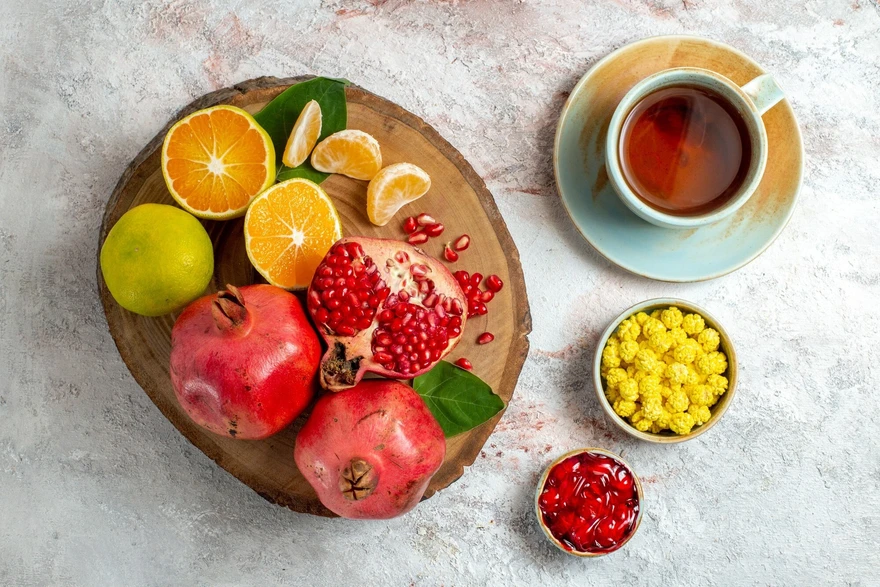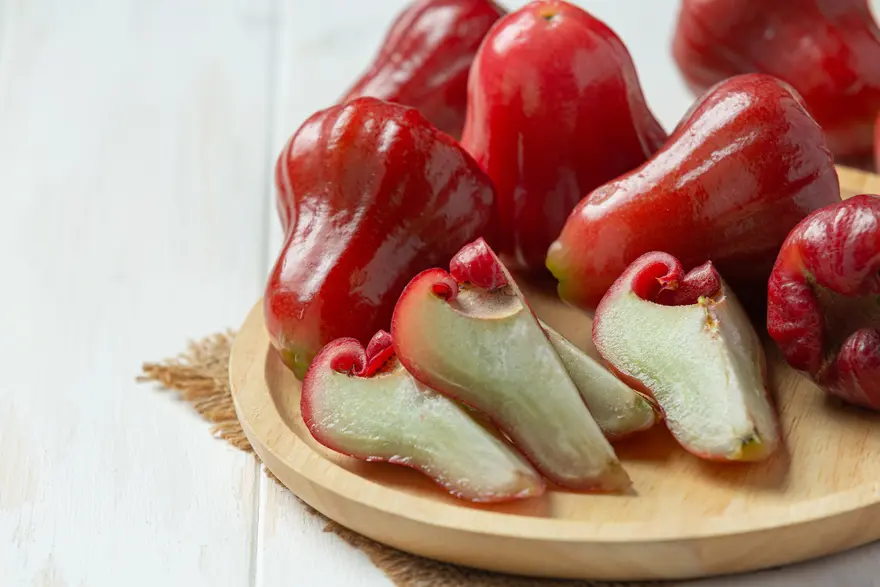Preventive Healthcare
Monsoon Diet: What to Eat and Avoid During the Rainy Season
29207 Views
0

Introduction
As the monsoon clouds gather over the Indian subcontinent, a wave of relief washes over us, bringing relief from the sweltering heat of summer. However, while we enjoy these cold showers, it's worth remembering that monsoon also comes with its own se of health concerns. Humidity during monsoons makes our body susceptible to several infections and diseases. Therefore, we must pay attention to what goes into our plates during this season - enter the concept of a well-planned monsoon diet.
This blog aims to provide you with a comprehensive guide on which foods to embrace and which to avoid during the rainy season as part of your balanced monsoon diet plan. This guide is designed by keeping in mind that every bite you take should not only satisfy your hunger but also strengthen your immune system against monsoon-related illnesses.
Eat Seasonal Fruits
Seasonal fruits are rich in vitamins and minerals that help boost immunity and should be a part of your diet in rainy season. Choose apples, pears, pomegranates, lychees and bananas during monsoon. These fruits have a low water content, which reduces the risk of water-borne diseases. However, be careful when eating mangoes, which can cause skin problems like pimples.
Hydrate with Warm Liquids
Hydration is key to health, especially during the monsoons when the humidity can lead to dehydration. Go for warm or hot liquids like herbal teas with ginger, pepper, honey, mint and basil leaves. These not only keep you hydrated but also have antibacterial properties that enhances immunity. However, avoid excessive intake of coffee and tea as they dehydrate body fluids.
Eat Light and Fresh
A crucial aspect of your monsoon diet should be to eat light and fresh food. Heavy meals can be hard to digest while fresh food reduces the chances of infections. Go for foods which are a rich source in fibre like brown rice, oats, and barley which are excellent during monsoon. Add a dash of garlic to your soups or curries as it's a natural immunity booster.
Steamed Vegetables
During the monsoon season, raw vegetables can carry harmful bacteria and viruses that can cause various infections. Include steamed salad instead of raw salad in your monsoon diet plan. As steamed vegetables are easier to digest and the cooking process can also remove the bacteria effectively.
Include Probiotics
Including probiotic-rich foods like yogurt and almond milk will not only help in digestion but also boost our immune system. They are a healthy alternative to milk, which causes bloating and indigestion during monsoons.
Bitter is Better
Bitter vegetables like bitter gourd (karela) and herbs like neem, turmeric powder and fenugreek seeds (methi) help strengthen our immune system to prevent infections. Include them in your diet in rainy season.
Don'ts of Monsoon Diet
The monsoon season not only brings refreshing change in weather, but also an increases risk of waterborne diseases and digestive problems along. To stay healthy during this season, it is important to consider your monsoon diet plan and avoid certain foods and practices that can compromise your health.
Here are some key "don'ts" to keep in mind for a safe and nutritious monsoon diet:
Avoid Watery Foods
During the monsoon season, it is recommended to avoid foods that contain water such as melons and cucumbers. These foods can increase the risk of waterborne diseases due to rainwater contamination. Additionally, foods containing water can cause bloating and indigestion, as the digestive system tends to be more sensitive during this time.
Avoid Street Food
Street food is a staple for many, but during the monsoon, it can be particularly hazardous. The humid conditions and exposure to rainwater make it easier for bacteria and other pathogens to contaminate these foods. To avoid gastrointestinal infections and food poisoning, it is best to avoid street food and go for home-cooked meals instead.
Avoid Spicy Food
Spicy foods can make digestive issues more worse, which is the most common condition during the monsoon season. The high humidity affects the body's digestive capacity, and consuming spicy foods can lead to acidity, indigestion, and discomfort. It is better to eat mild and easily digestible foods to keep your stomach settled.
Avoid Eating Fried Foods
While fried foods might be tempting during the cool, rainy weather, they can also be tough on the digestive system. The high fat content in fried foods slows down digestion and can lead to bloating and discomfort. It is beneficial to avoid these foods to maintain a healthy monsoon diet.
Avoid Salt
Excess salt can cause water retention and bloating, which is particularly uncomfortable during the humid monsoon season, and can also aggravate conditions like hypertension. Reducing salt intake as part of the monsoon diet helps maintain fluid balance and avoids unnecessary health complications during this time.
Limit Seafood
Monsoon is typically the breeding season for many types of fish and other seafood, which makes them more susceptible to contamination and infection. Consuming seafood during this season increases the risk of foodborne illnesses. It is safer to limit or avoid seafood and wait until the season passes.
Avoid Raw Leafy Greens
Raw leafy vegetables can contain dirt, bacteria and other pathogens that are difficult to wash away completely, especially during the rainy season. If consumed, these can lead to stomach infections and other health issues. Instead, cook leafy greens thoroughly to kill harmful microorganisms and make them safer to eat.
Conclusion
The monsoon season provides a refreshing relief from the summer heat, but certain precautions need to be taken with regards to diet. The above monsoon diet guide will give you information on which foods can help improve your health and which foods pose risk during the monsoon season.
Staying healthy during monsoons is not just about the maintaining a right diet but also about maintaining cleanliness around us. Wash your hands before and after meals, ensure that your vegetables are washed well before cooking, and stay hydrated but with safe drinking water.
Also, consider booking an at-home sample collection with Metropolis Labs for a comprehensive health check-up to ensure your health parameters are in check as you navigate through the monsoons.























 WhatsApp
WhatsApp
